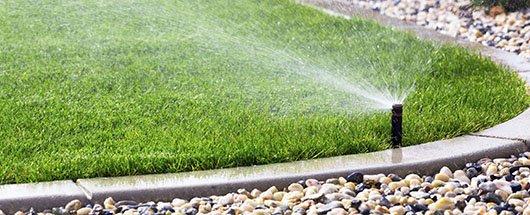A sprinkler system water audit is a crucial process for maintaining an efficient irrigation system. It helps identify issues that can lead to water waste and increased costs. Understanding these common problems can help you keep your irrigation system in top shape and conserve water effectively.
Uneven Water Distribution
One of the most common issues found during a sprinkler system water audit is uneven water distribution. This problem occurs when some areas of your garden receive too much water while others get too little. It can be caused by several factors:
- Clogged Sprinkler Heads: Debris and dirt can block sprinkler heads, preventing them from spraying water evenly.
- Improper Sprinkler Placement: Sprinklers that are not positioned correctly may miss parts of the garden or overlap too much.
- Pressure Issues: Water pressure that is too high or too low can affect the performance of your sprinklers.
To fix uneven distribution, professionals will check and adjust the placement of sprinkler heads, clean them, and ensure the water pressure is within the recommended range.
Leaks and Broken Pipes
Leaks and broken pipes are another common issue identified during an irrigation audit for water conservation. Leaks can occur in various parts of the system, including:
- Pipes: Cracks or damage in pipes can lead to water loss.
- Connections: Loose or faulty connections between pipes can cause leaks.
- Sprinkler Heads: Broken or cracked sprinkler heads can also result in leaks.
Leaks not only waste water but can also lead to higher water bills and potential damage to your garden. During the audit, professionals will inspect the system for leaks and make necessary repairs.
Misaligned Sprinkler Heads
Misalignment of sprinkler heads is a problem that can lead to inefficient watering. Sprinkler heads that are not properly aligned may:
- Miss Target Areas: They may fail to cover specific areas of the garden.
- Overwater Certain Spots: They may water some areas too much, leading to water waste.
During the audit, professionals will check the alignment of each sprinkler head and adjust them to ensure they cover the intended areas evenly.
Clogged Filters and Nozzles
Clogged filters and nozzles can affect the performance of your sprinkler system. Filters and nozzles can become clogged with debris, minerals, or algae, leading to:
- Reduced Water Flow: This can result in lower pressure and uneven watering.
- Wasted Water: Clogged nozzles can cause water to spray inefficiently.
Professionals will clean or replace filters and nozzles during the audit to ensure proper water flow and distribution.
Inefficient Scheduling
An inefficient watering schedule can lead to overwatering or underwatering your garden. Common issues with scheduling include:
- Watering at the Wrong Times: Watering during the hottest part of the day can lead to evaporation, wasting water.
- Incorrect Duration: Watering for too long or too short a time can affect plant health and water usage.
During the audit, professionals will review and adjust the watering schedule to ensure it is optimized for water conservation and plant needs.
Poor Soil Conditions
Soil conditions play a significant role in how effectively your sprinkler system works. Issues with soil conditions can include:
- Compacted Soil: Soil that is too compacted may not absorb water properly, leading to runoff.
- Poor Drainage: Soil with poor drainage can cause water to pool and lead to plant root problems.
Professionals will assess soil conditions and may recommend improvements, such as aeration or adding organic matter, to enhance water absorption and reduce runoff.
Outdated Equipment
Outdated or inefficient equipment can be a problem in older sprinkler systems. Equipment issues may include:
- Old Sprinkler Heads: Older models may not distribute water efficiently.
- Faulty Controllers: Controllers that are outdated may not offer modern water-saving features.
During the audit, professionals will evaluate the condition of the equipment and suggest upgrades or replacements if necessary.
System Design Issues
The design of your sprinkler system can impact its efficiency. Common design issues include:
- Improper Zoning: Incorrect zoning can lead to uneven watering, where some areas get too much water while others get too little.
- Inadequate Coverage: A system that doesn’t cover all areas of the garden can result in dry spots.
Professionals will review the system design and make adjustments to improve coverage and ensure that all areas receive adequate water.
Conclusion
A sprinkler system water audit helps identify and address various issues that can impact the efficiency of your irrigation system. Common problems include uneven water distribution, leaks and broken pipes, misaligned sprinkler heads, clogged filters and nozzles, inefficient scheduling, poor soil conditions, outdated equipment, and system design issues. By addressing these problems, you can improve water conservation, reduce costs, and ensure that your garden receives the right amount of water. Regular audits and maintenance are key to keeping your sprinkler system working efficiently and effectively.
